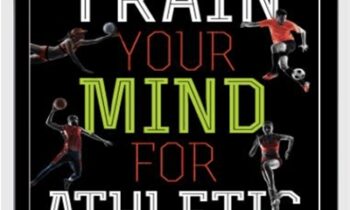$199.00 Original price was: $199.00.$58.00Current price is: $58.00.
Dr. Julie Gottman describes the impact of PTSD on committed relationships using real examples of trauma caused by early abandonment, childhood abuse, and military combat.
 Purchase this course you will earn 58 Points worth of $5.80
Purchase this course you will earn 58 Points worth of $5.80Elevate your skills with the Treating Affairs and Trauma 2022 – Julie Gottman & John Gottman course, available for just $199.00 Original price was: $199.00.$58.00Current price is: $58.00. on Utralist.com! Browse our curated selection of over 60,000 downloadable digital courses across diverse Health and Medical. Benefit from expert-led, self-paced instruction and save over 80%. Start learning smarter today!
Salepage link: At HERE. Archive: https://archive.ph/wip/pSvm2
Buy now $58 $199, Treating Affairs and Trauma 2022 – Julie Gottman & John Gottman Course.
Description
Treating Trauma
Dr. Julie Gottman describes the impact of PTSD on committed relationships using real examples of trauma caused by early abandonment, childhood abuse, and military combat. She demonstrates a therapeutic approach that interweaves individual PTSD treatment with Gottman Method Couples Therapy. Watch Paul and Shantel, the couple featured in our Level 1 Clinical Training and Therapy Sessions: Live videos, as they return to therapy with the Gottmans eight years later. These new films demonstrate powerful couples interventions for PTSD and trauma.
Treating Affairs
Dr. John Gottman unfolds the science behind trust and betrayal and provides the tools needed to create trust and commitment in love relationships. The Gottmans describe their impactful “Atone, Attune, and Attach” model for treating affairs. This model provides clinicians with an unbiased approach that compassionately serves both partners as they struggle to rebuild a collapsed marriage. See brand new films of the Gottmans in their clinical office engaging in intensive therapy with a military couple, a case in which the husband had an affair and suffered from PTSD following his 12 back-to-back deployments overseas. Learn the important variations in assessment and intervention techniques that empower couples to not only rebuild their relationship, but also create immunity from future betrayals.
Learning Objectives
-
At the completion of this training, you will be able to:
-
Compare and contrast the psychometric soundness of assessment instruments used to diagnose PTSD, including tools for structured interviews, self-report scales, and psycho-physiological assessment methods.
-
Distinguish between the neurobiological changes associated with PTSD that occur in the amygdala, anterior cingulate cortex, prefrontal cortex and hippocampus.
-
Evaluate the effectiveness of popular individual therapies for treating PTSD.
-
Compare and contrast research studies on couples therapy methods for treating PTSD.
-
Defend the practice of conducting conjoint therapy to address PTSD during couples therapy by referencing the relevant research findings on the impact of PTSD on relationships, as well as the relationship outcomes associated with individual PTSD treatment.
-
Implement clinical strategies that help “surface” trauma when working with a couple with PTSD.
-
Select clinical interventions that help “explore” trauma at a deeper level once it has surfaced.
-
Facilitate movement from the individual to the dyad when processing a trauma.
-
Teach couples how to conduct a Stress-Reducing Conversation when PTSD is involved.
-
Teach couples how to conduct an Aftermath of a Regrettable Incident Exercise when PTSD is involved.
-
Compare and contrast popular therapies for treating infidelity.
-
Explain how the 24 steps of the “Gottman-Rusbult-Glass” cascade toward betrayal lead to a blurring of boundaries between self and potential others.
-
Explain how a betrayed partner may develop PTSD as a result of their partner’s affair.
-
Apply the Gottman Method Couples Therapy Assessment process with couples who have experienced an affair.
-
Incorporate appropriate additional details when conducting an Assessment feedback session for treating affairs.
-
Facilitate the Atonement phase of Gottman Method Couples Therapy for affairs.
-
Defend the practice of allowing the hurt partner to express anger, insecurity, resentment, fear and feelings of rejection, rather than down-regulating their expression of emotion.
-
Implement appropriate clinical tools to strengthen an affair couple’s Attunement to each other.
-
Teach affair couples how to effectively process Regrettable Incidents.
-
Select appropriate clinical interventions to deepen an affair couple’s Attachment to one another.
-
Apply effective clinical strategies to help affair couples prevent relapse.
Cultivate continuous growth with the Treating Affairs and Trauma 2022 – Julie Gottman & John Gottman course at Utralist.com! Unlock lifetime access to premium digital content, meticulously designed for both career advancement and personal enrichment.
- Lifetime Access: Enjoy limitless access to your purchased courses.
- Exceptional Value: Benefit from savings up to 80% on high-quality courses.
- Secure Transactions: Your payments are always safe and protected.
- Practical Application: Gain real-world skills applicable to your goals.
- Instant Accessibility: Begin your learning journey immediately after buying.
- Device Compatible: Access your courses seamlessly on any device.
Transform your potential with Utralist.com!
| Language | |
|---|---|
| Author |
Related products
Health and Medical
Train Your Mind for Athletic Success – Mental Preparation to Achieve Your Sports Goals – Jim Taylor
= 18 Points
Health and Medical
= 74 Points
Health and Medical
EXOS Presents: Advanced Strength and Power Featuring Dan Baker
= 53 Points
Health and Medical
= 29 Points
Health and Medical
MyBeliefworks for Pain Relief, Chronic, Pre Op/Post Op to Pain-free Recovery – Jimmy Mack
= 25 Points
Health and Medical
= 33 Points
Health and Medical
= 27 Points
Health and Medical
Certificate Course in Optimal Aging: Evidence-Based Interventions for Older Adults – Carole Lewis
= 95 Points










